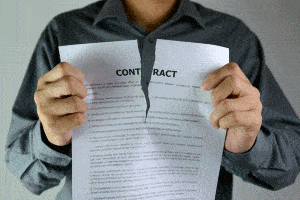 Sometimes things do not go according to plan when you buy a business. And if it becomes a dumpster fire quickly after you bought it, you may want to consider either terminating or rescinding the agreement to purchase.
Sometimes things do not go according to plan when you buy a business. And if it becomes a dumpster fire quickly after you bought it, you may want to consider either terminating or rescinding the agreement to purchase.
Of course, this depends in part on whether the seller screwed up (e.g., misrepresented key facts) or something vital interfered with the essence of the deal (e.g., seller is unable to transfer important assets).
In an ideal situation, you and the seller will agree to rescission, i.e. you’ll treat the agreement as if it never existed. By voiding the contract, you’ll each return to the other what you received under the deal. For example, you might receive your down payment back and the seller would get back any assets transferred to you.
However, as a practical matter whatever you paid the seller has probably been spent (e.g., seller’s business broker fees) and is unlikely to be returned. If that’s the case, then rescission won’t be a viable option. So, you’ll be looking at termination instead.
If you and the seller agree to terminate the agreement, that means the business contract will not be enforced after the termination date. More often than not, you’re cutting your losses but not being restored to the position you would have been in as if the contract had never existed (rescission).
To get the seller to agree to termination, chances are you’ll end up transferring some (or all) assets you received back to the seller. The primary benefit of this is you stop the financial bleeding by escaping a money-losing business and eliminating future payment obligations to the seller under the agreement that’s being terminated.
Now if you need help with rescinding or terminating a business contract without going to court, it’s probably time to set up a phone consultation with Business Lawyer Mike Young.
